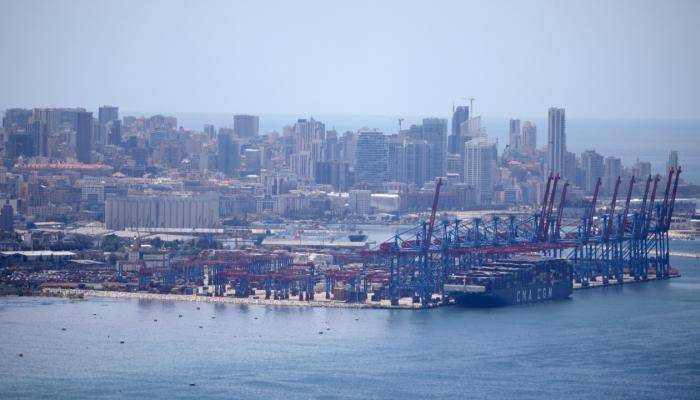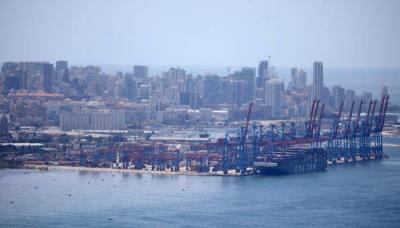The Association of University Graduates in the North hosted Hani Bahsaly, the head of the food importers in Lebanon, in a virtual meeting where he discussed "the most pressing issues impacting the Lebanese citizen, particularly regarding food security" due to the far-reaching consequences of the public sector strike and the severely reduced operations at the Port of Beirut.
The president of the association and secretary of the Tripoli Traders Association, Ghassan Hassami, expressed his concern about the potential deterioration of "food security." Bahsaly explained that "food security encompasses three main aspects, which are interconnected and cannot be separated: the existence of food, access to food, and food safety. The existence of food refers to the ability to import or produce it; access aims to ensure it is available to consumers, especially during dire circumstances such as wars, closures, or strikes."
Regarding food safety, Bahsaly noted that it pertains to the safety, quality specifications, storage, and expiration date of food.
He added: "Concerning food security amid the ongoing strike of Beirut port workers, which is entering its eighth week, aside from the collapse of purchasing power, the astronomical rise of the dollar 'twenty times,' bankruptcies, and closures of thousands of factories and companies, I have been working diligently with the Prime Minister and the relevant committees to find solutions to mitigate the worsening situation. I firmly believe that the port is a vital facility that must not be shut down, similar to the emergency department in any hospital."
He continued: "All these efforts led to preventing the complete shutdown of the Port of Beirut, as some employees have come to work, albeit intermittently and variably among ministries, reflecting a temporary improvement."
Bahsaly further explained that the accumulation of containers at the port and delays in their inspection have resulted in the loss of some food products in the market, prompting some traders to issue an urgent appeal for immediate remedies, especially in light of fluctuations in global prices affecting many items, exacerbating confusion among many fellow traders and causing significant losses, alongside the accumulation of storage fees and land costs that have inevitably led to a temporary increase in prices. This, in turn, affects a large segment of consumers due to difficulties in accessing or obtaining food.
He expressed deep regret for "the lack of any quick rescue solutions on the horizon, driving some fellow traders to halt imports, particularly from nearby countries like Egypt, Turkey, and Greece, where shipping does not take more than a few days."
He stated: "Regarding food safety, unfortunately, we also report that the presence of hundreds of containers loaded with food at the port for an extended period under high temperatures may damage some of them, due to the absence of personnel from the relevant ministries and agencies to take samples. However, this does not mean they will enter the markets. As for containers carrying refrigerated food, they are stored in refrigerators according to the required health specifications and standards, but the rising costs due to their prolonged storage situation remain a concern."
He concluded: "Finally, the trader continues to incur hefty losses that exceed their capacity, especially since these losses are not covered by insurance policies, as they only compensate in cases of 'fire, sinking, and non-delivery,' except for a very few importers who incur the expenses of comprehensive coverage policies. There is no solution other than sending inspectors to the port to take samples, and there is no alternative for that (except not taking samples, which is completely unacceptable). We proposed several solutions, including providing incentives for employees to attend work regularly and applying Article 57 of the Customs Law (escort), which has produced some relief, along with promises of additional salaries and incentives for the public sector, which would help; however, a definitive solution has yet to be found."




